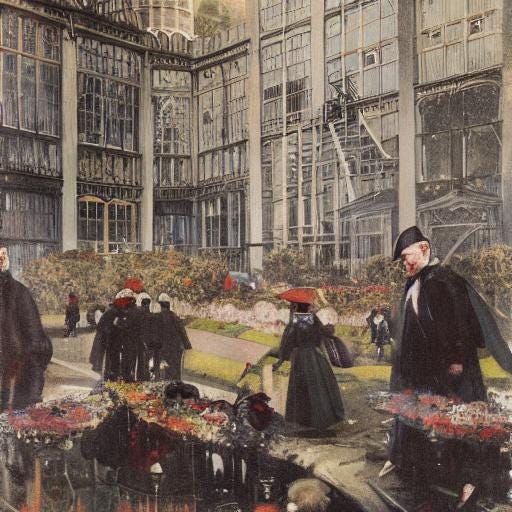Connoisseurship and a tendency towards the short form
Weird Fiction in Britain 1880–1939 (2018) by James Machin
....The ensuing claim for cultural value above that normally afforded ‘genre’ fiction has been discussed in the Introduction and will be discussed in further detail elsewhere in this book. It is, at root, predicated on the same high/low cultural divide precipitated by the fin-de-siècle publishing boom and intensified by Modernism. Also implicit is a distinction between two conceived groups: the consumers of populist lowbrow texts and a more educated cultural elite who can identify and appreciate literature of value.
Ironically, in terms of contemporary cultural impact, only the materialist, extraterrestrial horrors of H. P. Lovecraft can compete with the ‘zombies, werewolves, mummies, [and] ghouls’ which still overwhelmingly dominate contemporary horror fiction and cinema, and the previously unassailable centrality of Lovecraft to weird fiction is now being lobbied against accordingly from some quarters, Lovecraft increasingly becoming a critical victim of his own posthumous success (VanderMeer 2012). The nebulosity of preLovecraftian weird fiction means that it is far harder to commodify, which has also perhaps resulted in a lack of direct visibility in popular culture. However, the influence of writers like Machen and Shiel is certainly still present albeit filtered through the work of more culturally impactful writers like Lovecraft and Stephen King. Their lack of direct visibility has also resulted in a culture of self-identifying ‘connoisseurship’, in which networks of collectors, enthusiasts, and writers can wear the obscurity of their enthusiasms as a badge of honour, a mark of authentic understanding and appreciation of weird fiction, particularly of this pre-Lovecraftian period, and, importantly, of what demarcates it from the arguably cruder albeit more popular ‘horror’ genre, especially from the latter’s schlockier manifestations (‘the literature of mere physical fear and the mundanely gruesome’) (Lovecraft 1985, 426).
It is this tendency that has resulted in small but dedicated and passionate coteries of ‘collector-fans’ (so described by Kirsten MacLeod) or ‘connoisseurs’, who Baudrillard distinguishes as those who respond to ‘singularity and differentness’, keeping alive the names of otherwise almost entirely forgotten writers such as Count Eric Stenbock, discussed below (MacLeod 2004, 121; Baudrillard 1994, 10). Although most often associated with small presses and amateur societies, this culture of ‘connoisseurship’ is also participated in by, for example, Stephen King and director Guillermo del Toro, who—hugely successful and popular—perhaps also harbour a desire to demonstrate and reinforce to the cognoscenti (i.e., their fellow connoisseurs rather than their wider audience) their cultural capital, where their economic capital is self-evident to the population at large. Both King and del Toro, for example, are effusive and unequivocal in their enthusiasm for Machen, an otherwise little-read ‘minor’ writer whose brief periods of commercial success were limited to the 1890s in Britain and a brief revival in America in the 1920s, but who King, particularly, imbues with an artistic value even to the detriment of his own work (“StephenKing.Com – Messages from Stephen” 2008; del Toro 2011).
One anomalously dependable demarcation of weird fiction is its tendency towards the short form. There are of course always exceptions to prove the rule, but the multicharacter narrative usually necessitated by the long form normally results in a novel that might incorporate weird elements but not be purely identifiable as weird in and of itself. Or, as Lovecraft puts it, the weird can appear ‘in memorable fragments scattered through material whose massed effect may be of a very different cast’ (Lovecraft 1985, 427). Machen’s novel The Three Impostors could perhaps be cited here but only if one were to ignore the fact that it is a portmanteau assembly of short stories, some of which had seen print before....
WEIRD FICTION IN BRITAIN 1880–1939
James Machin
2018: Palgrave





very interesting. I hadn’t thought of the idea of connoisseur groups , but it rings true .